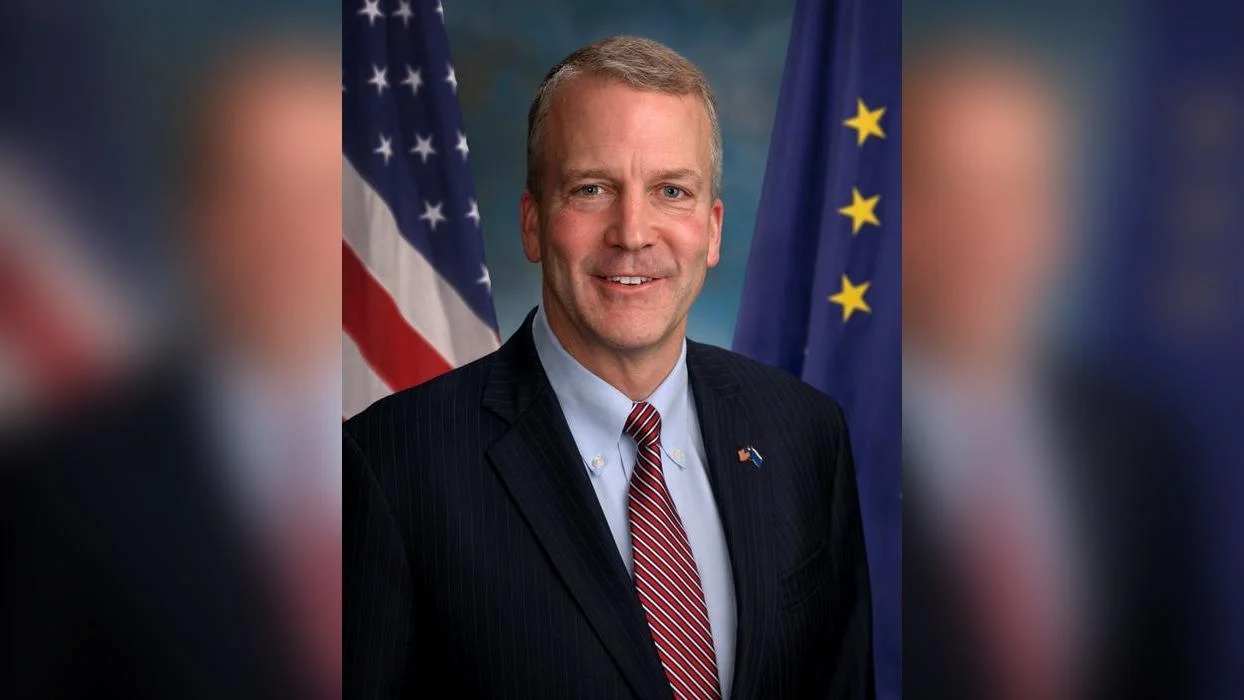Dan Sullivan, U.S. Senator from Alaska | www.sullivan.senate.gov
Dan Sullivan, U.S. Senator from Alaska | www.sullivan.senate.gov
The U.S. Senate has unanimously approved the Harmful Algal Bloom and Hypoxia Research and Control Amendments (HABHRCA) Act of 2025, sponsored by Senator Dan Sullivan (R-Alaska). The legislation seeks to reauthorize and strengthen the original HABHRCA Act of 1998, supporting coordinated federal and state responses to harmful algal blooms (HABs). The bill aims to improve access to observation data, training in monitoring, prevention, mitigation, and testing for HAB toxins. Companion legislation is under consideration in the House.
Harmful algal blooms are a recurring issue across all 50 states, affecting rivers, lakes, and coastal waters. In Alaska’s Bering Strait region, a significant bloom occurred in 2022—one of the largest and most toxic on record nationally. These events can impact food security and subsistence living while causing hypoxia that threatens marine life and damages coastal ecosystems.
“Unchecked harmful algal blooms can threaten our marine life and coastal ecosystems, the livelihoods of our commercial fisheries and coastal communities, and the health and well-being of Alaskans,” Senator Sullivan said. “Alaska is our country’s leading seafood producer and home to more coastline than the contiguous Lower 48 states combined, making our response to HABs critically important. I want to thank all of my Senate colleagues for unanimously approving this important legislation, which will develop and coordinate effective responses to harmful algal blooms and improve the monitoring of the health of our oceans for the sake of coastal communities, especially those that rely on subsistence. I also want to commend our many Alaska stakeholders for working with me to support the health of our marine ecosystems in Alaska and across the country.”
Marine stakeholders expressed their support for reauthorizing HABHRCA:
“The reauthorized HABHRCA is a vital heartbeat in the extensive research yet to be done in our marine environment. Essential data through methods that protect our natural resources will assist all in adaptive management decisions for food security and safety,” said Emma Pate, executive director of the Nome Eskimo Community. “All of us worldwide rely on foods from the marine ecosystem. Thank you, U.S. Congress, for recognizing the imperative need to continue with your support.”
“The reauthorized HABHRCA now includes northern marine ecosystems and the people that rely on them for nutritional, cultural, and economic well-being,” said Gay Sheffield, UAF Alaska Sea Grant, Marine Advisory Program Agent (Nome). “Many thanks to our U.S. Congress for recognizing the needs and concerns of Arctic Americans!”
“HABHRCA provides essential support to human and environmental health and safety as well as to economic growth and prosperity nationwide,” said Don Anderson, senior scientist at the Woods Hole Oceanographic Institution and director of the U.S. National Office of Harmful Algal Blooms. “The legislation recognizes the need for a comprehensive response to HABs and hypoxia and authorizes multiple funding programs and management activities across federal agencies that have had a huge positive impact on U.S. capabilities to monitor and manage these outbreaks. The success of the U.S. National HAB program is built on HABHRCA’s emphasis on facilitating partnerships among federal, state, academic, and industry stakeholders, underscoring the bipartisan nature of HAB and hypoxia problems and their national importance.”
"Harmful algal blooms and their toxins are a threat to the food safety, food security, and economy of Alaskan coastal communities,” said Sheyna Wisdom, executive director, and Dr. Thomas Farrugia, program manager, Alaska Ocean Observing System. “Reauthorizing HABHRCA will continue the crucial research and monitoring efforts that are helping us to understand and mitigate the HAB risks in Alaska. We are very happy to see this legislation pass the Senate and hope for a speedy passage into law."
Senator Sullivan’s bill was cosponsored by several senators from both parties.
The original act established an interagency task force focused on assessing harmful algal blooms’ distribution along with their effects on water quality—and it has been renewed three times since its initial passage.





 Alerts Sign-up
Alerts Sign-up